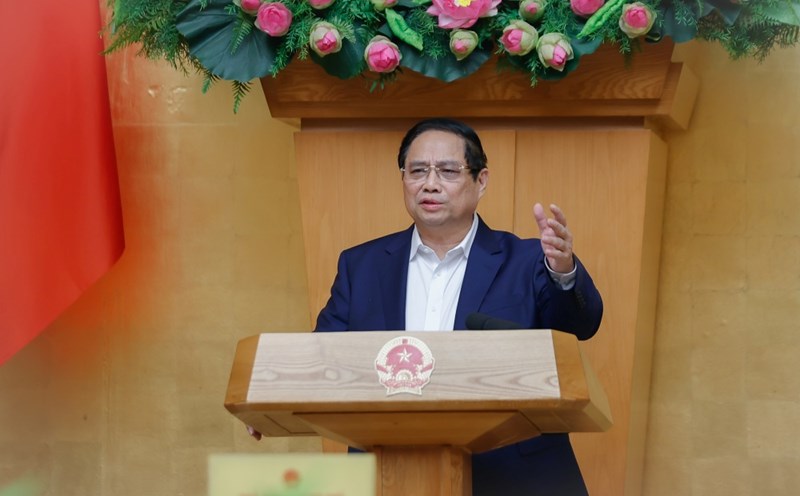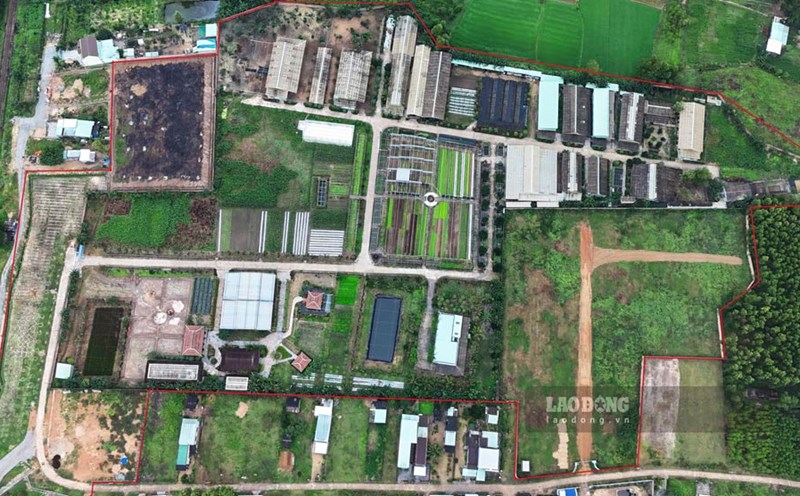On the afternoon of April 6, at the regular Government press conference in March 2025, Mr. Truong Thanh Hoai - Deputy Minister of Industry and Trade - informed about Vietnam's export activities when the US announced the imposition of a counterpart tax of 46% on Vietnamese goods.
Mr. Truong Thanh Hoai said that the US announcement of a 46% countervailing tax on Vietnamese goods from April 9 has a huge impact on Vietnam's export activities as well as economic growth, directly affecting manufacturing and processing industries, attracting FDI, domestic investment, services, etc.
Some key export items such as computers, electronic components, textiles, footwear, etc. are at risk of having their export turnover reduced.
When the US increases taxes, the prices of Vietnamese exports to the US will increase, which will affect the level of competition with goods from other countries. At the same time, the purchasing power of American consumers will also decrease, causing the demand for Vietnamese goods to decrease accordingly," said Mr. Truong Thanh Hoai.
The Deputy Minister of Industry and Trade also pointed out that, with the signed contracts, US businesses themselves will also reconsider whether to continue buying and selling contracts with Vietnam or not.
The Ministry of Industry and Trade has implemented a series of contacts with different levels of the US and clarified Vietnam's views. Accordingly, both sides wish to continue to strengthen bilateral cooperation on the overall developments of the two countries.
Vietnam is ready to discuss with the US about bringing the import of goods from the US to 0%. This is an important step to resolve the tariff problem with the US.
In the coming time, Mr. Truong Thanh Hoai said that the Ministry of Industry and Trade will continue to coordinate with relevant US ministries and branches to closely discuss the remaining issues in investment and trade relations between the two countries.
According to the Deputy Minister of Industry and Trade, exports in the coming time will face many challenges, so ministries and branches must also closely coordinate with businesses to effectively implement the proposed measures.
The first solution is to effectively take advantage of free trade agreements (FTAs); promote diversification of export markets such as the Middle East, Latin America, etc.; increase trade promotion, improve logistics infrastructure to reduce transportation costs and enhance the competitiveness of Vietnamese goods.
Support the improvement of the capacity of domestic and exporting manufacturing enterprises of Vietnam to ensure adaptation to the market and development trends.
"We need to have more drastic policies for the manufacturing and processing industry, in order to promote the increase in domestic value of industrial products, meeting the requirements for the origin of goods of other countries," said Mr. Truong Thanh Hoai.
The leaders of the Ministry of Industry and Trade also emphasized the need to ensure the legitimate rights and interests of enterprises, ensure timely and timely handling of problems and trade disputes, in order to minimize damage to Vietnamese enterprises.
Although facing many challenges, we still have to restructure the economy in a fast and sustainable direction, increase autonomy, and promote market diversification, said Mr. Truong Thanh Hoai.
On the business side, the Deputy Minister of Industry and Trade requested businesses to proactively update market information, regularly monitoring trade policies of countries to promptly adjust business strategies accordingly.
At the same time, on the basis of the signed FTAs of Vietnam, it is necessary to diversify export markets, effectively exploit key markets, traditional markets as well as small markets and corridor markets.
Ensure compliance with the rules of origin in FTAs, avoid risks related to trade fraud, avoid the use of third- country commodity accessories.










